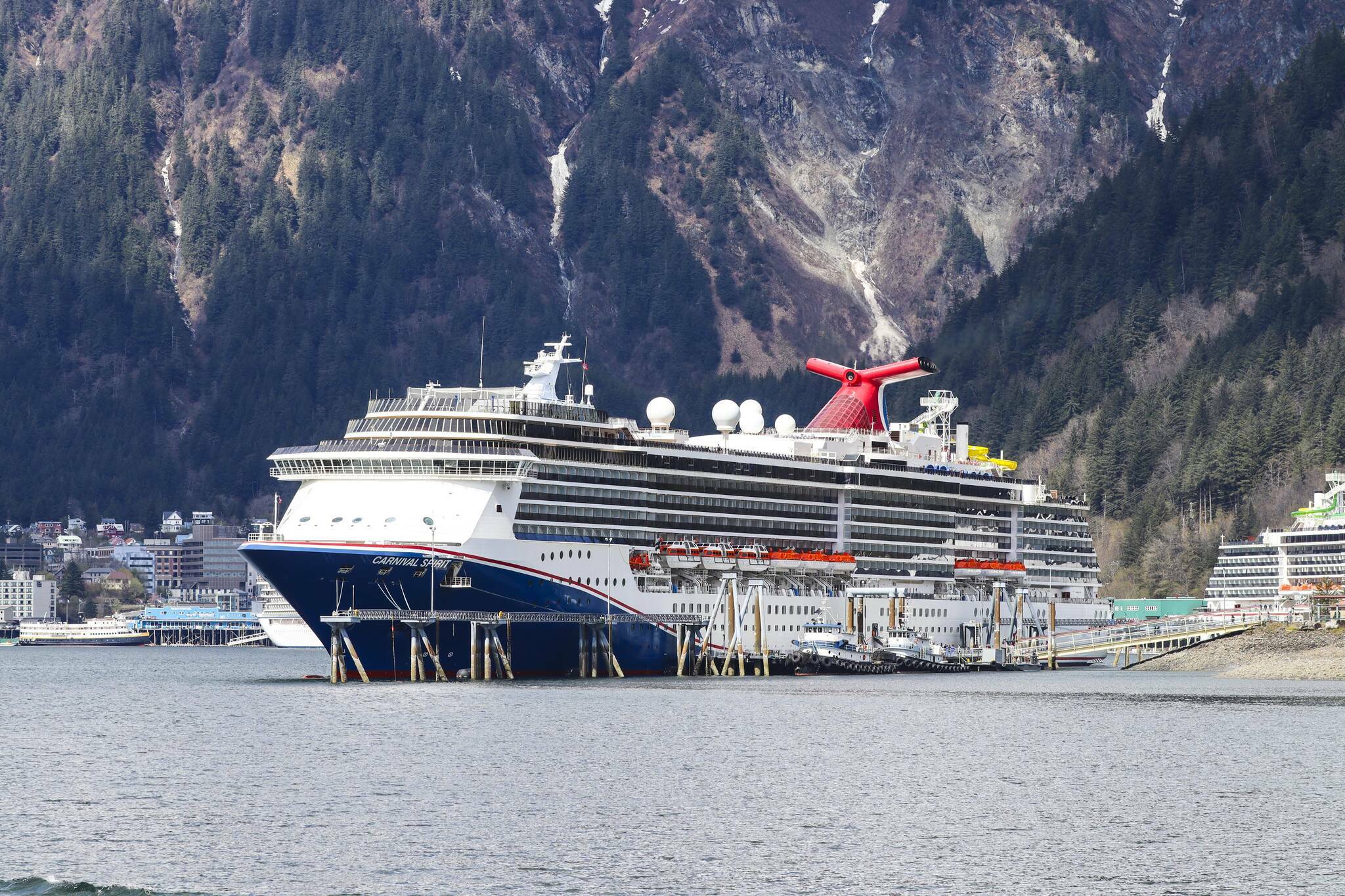Backers of a cruise initiative to block large cruise ships from docking in Juneau on Saturdays and the Fourth of July say they have sufficient signatures to place the question on the ballot.
If enough signatures are certified and the petition is approved for the ballot, residents will need to decide whether or not to vote for it on Oct. 1.
The “Ship-Free” social media campaign pages suggest that Juneau’s skies are choked with smoke, its waters fouled by pollution, hiking trails are overcrowded, and its downtown core is unlivable.
That isn’t the truth and most Juneauites know it.
Initiative boosters have accused opponents of the measure of ignoring quality of life issues and only caring about the economic benefits of the visitor industry.
But who is actually ignoring the consequences?
The economic benefits of the visitor industry directly enhance Juneau’s annual budget as well as its quality of life. To dismiss those benefits as less important is dishonest.
Recognizing those contributions requires more than lip service. Can we start from an initial common set of facts and engage in honest communication?
Cruise supporters have, from the outset, acknowledged industry impacts, and have been willing to work to alleviate them. The Ship-Free folks are more interested in sabotaging the public process instead of working toward mutually achievable goals.
Regrettably, this type of initiative campaign often devolves into an overwrought, fact-free litany of misconceptions and half-truths about the industry.
The initiative declares that “excess human presence…sullies the sentient, sacred, divine, and living ancestral natural environment necessary for cultural and spiritual health and growth.”
It says the city “failed to balance the economic benefits to some against the economic and other harms of the many.”
“Harm” is a very strong word that usually conveys deliberately inflicted physical injury. This emotional narrative discounts a long-standing cooperative relationship that has successfully mitigated many visitor impacts. The Ship-Free petition seeks to undermine years of successful, good-faith collaboration engaged in by the city and the industry.
Visitor industry businesses and their employees are actively engaged members of the community who contribute generously to a myriad of civic and non-profit endeavors. The cruise industry has agreed to liberal uses of passenger fees (over $20 million annually) allowing them to be allocated for a variety of projects benefiting all of Juneau, not just cruise passengers.
An Alaska DEC science panel concluded that cruise ship water treatment systems, “are the most advanced, effective, and proven treatment systems available and…are significantly more effective than most municipal systems.” Cruise ship smoke emissions are abated by state-of-the-art technology. Juneau, in concert with the industry, was the first port in the world to offer environmentally-friendly (hydroelectric) shore power for ships.
Under industry-backed Tourism Best Management Practices (TBMP), many voluntary policies have been implemented including avoiding certain streets, local parks and trails, reducing flightseeing noise, staging traffic to minimize congestion, enacting stricter whale-watching rules, and staffing a tourism hotline for potential complaints.
Initiative sponsors are also short-circuiting the work of Juneau’s citizen-backed Visitor Industry Task Force (VITF). The initiative imposes a vote on a question neither the public nor the CBJ Assembly had a voice in formulating, despite the fact the city and industry just successfully concluded negotiations limiting daily passenger visitation.
Eighty-five large cruise ships are scheduled to visit Juneau in 2025 on Saturday and July 4, representing about 12% of all port calls. It will be almost impossible to accommodate them on other days due to scheduling conflicts, and the VITF-recommended five-ship limit and proposed ban on “hot berthing.”
While estimates vary, when including purchases by passengers, crewmembers, and cruise lines, as well as passenger fees, the loss of direct spending could approach $40 million per year. City revenues could be reduced by $4 million annually.
Can the Ship-Free boosters point to city programs and services that should be slashed to offset the revenue reduction? With city leaders loath to cut expenditures, we can expect property taxes to increase commensurately.
Juneau’s success in resolving tourism impacts argues for promoting cooperation, allowing voluntary limits to work, and negotiating changes if necessary.
Furthermore, the legality of blocking ships from visiting Juneau is questionable and most likely will be tested in court.
Juneau voters can decide which they prefer: expensive litigation or continuing collaboration.
• After retiring as the senior vice president in charge of business banking for KeyBank in Alaska, Win Gruening became a regular Opinion Page columnist for the Juneau Empire. He was born and raised in Juneau and graduated from the U.S. Air Force Academy in 1970. He is involved in various local and statewide organizations. Columns, My Turns and Letters to the Editor represent the view of the author, not the view of the Juneau Empire. Have something to say? Here’s how to submit a My Turn or letter.

